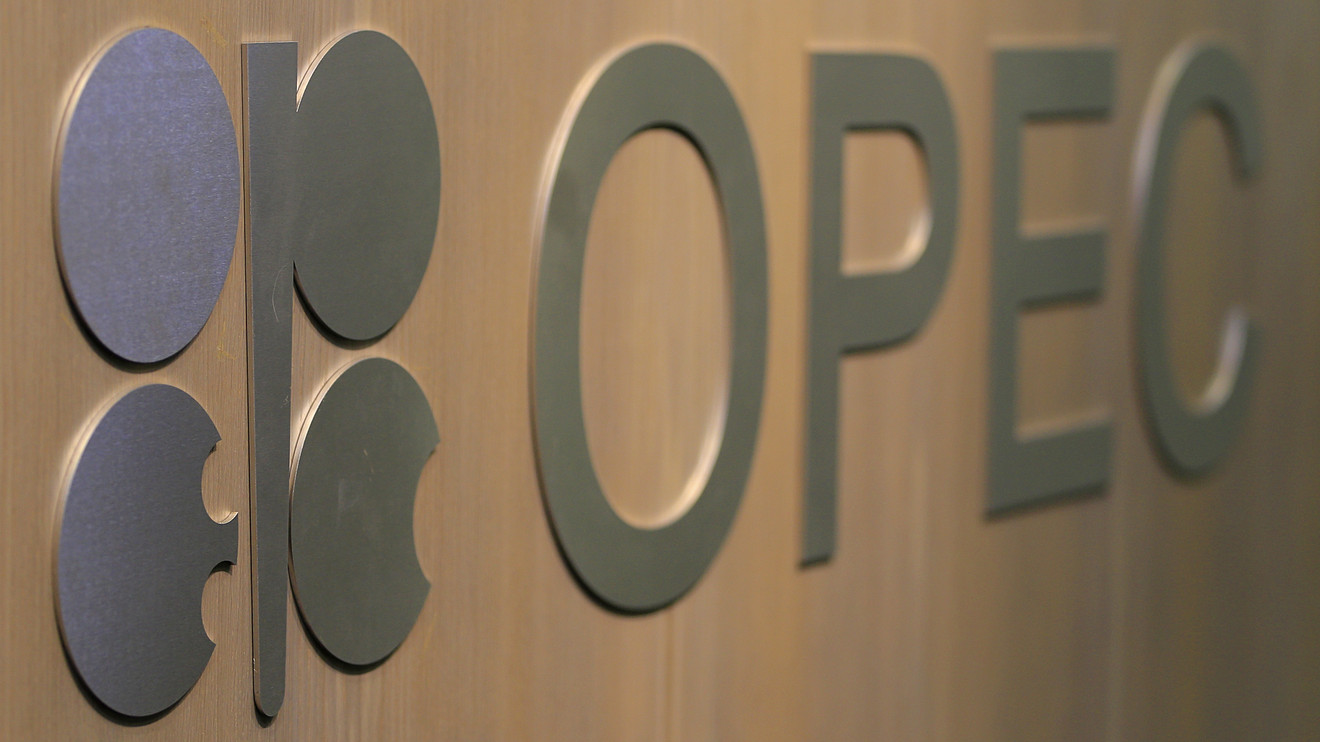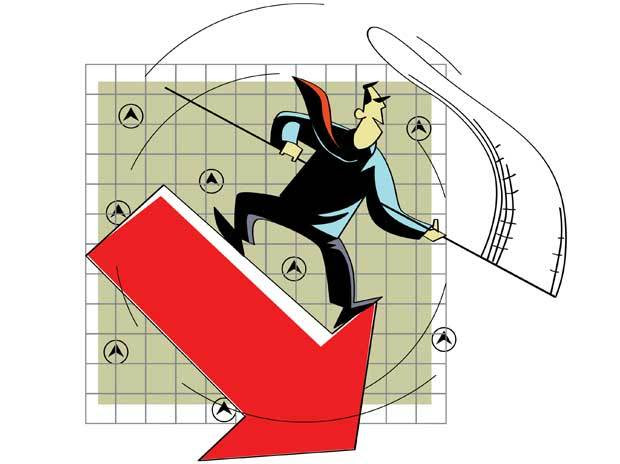 The Organization of the Petroleum Exporting Countries (OPEC) is a permanent intergovernmental organization of oil-exporting developing nations that coordinates and unifies the petroleum policies of its Member Countries. OPEC seeks to ensure the stabilization of oil prices in international oil markets, with a view to eliminating harmful and unnecessary fluctuations, due regard being given at all times to the interests of oil-producing nations and to the necessity of securing a steady income for them. Equally important is OPEC’s role in overseeing an efficient, economic and regular supply of petroleum to consuming nations, and a fair return on capital to those investing in the petroleum industry.
The Organization of the Petroleum Exporting Countries (OPEC) is a permanent intergovernmental organization of oil-exporting developing nations that coordinates and unifies the petroleum policies of its Member Countries. OPEC seeks to ensure the stabilization of oil prices in international oil markets, with a view to eliminating harmful and unnecessary fluctuations, due regard being given at all times to the interests of oil-producing nations and to the necessity of securing a steady income for them. Equally important is OPEC’s role in overseeing an efficient, economic and regular supply of petroleum to consuming nations, and a fair return on capital to those investing in the petroleum industry.
The Organization of the Petroleum Exporting Countries (OPEC) was founded in Baghdad, Iraq, with the signing of an agreement in September 1960 by five countries namely Islamic Republic of Iran, Iraq, Kuwait, Saudi Arabia and Venezuela. They were to become the Founder Members of the Organization. OPEC headquarter is located in Vienna, Austria. These countries were later joined by Qatar (1961), Indonesia (1962), Libya (1962), the United Arab Emirates (1967), Algeria (1969), Nigeria (1971), Ecuador (1973), Gabon (1975) and Angola (2007). From December 1992 until October 2007, Ecuador suspended its membership. Gabon terminated its membership in 1995. Indonesia suspended its membership effective January 2009. Currently, the Organization has a total of 12 Member Countries. The current Members are Algeria, Angola, Ecuador, Iran, Iraq, Kuwait, Libya, Nigeria, Qatar, Saudi Arabia, the United Arab Emirates and Venezuela.
The OPEC Statute distinguishes between the Founder Members and Full Members – those countries whose applications for membership have been accepted by the Conference. The Statute stipulates that “any country with a substantial net export of crude petroleum, which has fundamentally similar interests to those of Member Countries, may become a Full Member of the Organization, if accepted by a majority of three-fourths of Full Members, including the concurring votes of all Founder Members.” The Statute further provides for Associate Members which are those countries that do not qualify for full membership, but are nevertheless admitted under such special conditions as may be prescribed by the Conference.
OPEC influence on global oil price.
The Oil and Energy Ministers of the OPEC Member Countries meet at least twice every year to co-ordinate their oil production policies in light of market fundamentals, ie, the likely future balance between demand and supply. The Member Countries, represented by their respective Heads of Delegation, may or may not alter production levels during these regular Meetings and any Extraordinary Meetings of the OPEC Conference. Two-thirds of the oil reserves in the world belong to its members, and 55 per cent of the oil traded internationally, any decisions to increase or reduce production may lower or raise the price of crude oil.
The impact of OPEC output decisions on crude oil prices should be considered separately from the issue of changes in the prices of oil products, such as gasoline or heating oil. There are many factors that influence the prices paid by end consumers for of oil products. In some countries taxes comprise 70 per cent of the final price paid by consumers, so even a major change in the price of crude oil might have only a minor impact on consumer prices.
History of OPEC
OPEC’s formationin September 1960 occurred at a time of transition in the international economic and political landscape, with extensive decolonization and the birth of many new independent states in the developing world. The international oil market was dominated by the “Seven Sisters” multinational companies and was largely separate from that of the former Soviet Union (FSU) and other centrally planned economies (CPEs). OPEC developed its collective vision, set up its objectives and established its Secretariat, first in Geneva and then, in 1965, in Vienna. It adopted a ‘Declaratory Statement of Petroleum Policy in Member Countries’ in 1968, which emphasised the inalienable right of all countries to exercise permanent sovereignty over their natural resources in the interest of their national development. Membership grew to ten by 1969.
OPEC rose to international prominence during 70s, as its Member Countries took control of their domestic petroleum industries and acquired a major say in the pricing of crude oil on world markets. On two occasions, oil prices rose steeply in a volatile market, triggered by the Arab oil embargo in 1973 and the outbreak of the Iranian Revolution in 1979. OPEC broadened its mandate with the first Summit of Heads of State and Government in Algiers in 1975, which addressed the plight of the poorer nations and called for a new era of cooperation in international relations, in the interests of world economic development and stability. This led to the establishment of the OPEC Fund for International Development in 1976. Member Countries embarked on ambitious socio-economic development schemes. Membership grew to 13 by 1975.
After reaching record levels early in the 1980s, prices began to weaken, before crashing in 1986, responding to a big oil glut and consumer shift away from this hydrocarbon. OPEC’s share of the smaller oil market fell heavily and its total petroleum revenue dropped below a third of earlier peaks, causing severe economic hardship for many Member Countries. Prices rallied in the final part of the 80s, but to around half the levels of the early part, and OPEC’s share of newly growing world output began to recover. This was supported by OPEC introducing a group production ceiling divided among Member Countries and a Reference Basket for pricing, as well as significant progress with OPEC/non-OPEC dialogue and cooperation, seen as essential for market stability and reasonable prices. Environmental issues emerged on the international energy agenda.
Prices moved less dramatically than in the 1970s and 1980s, and timely OPEC action reduced the market impact of Middle East hostilities in 1990–91. But excessive volatility and general price weakness dominated in 90s and the South-East Asian economic downturn and mild Northern Hemisphere winter of 1998–99 saw prices back at 1986 levels. However, a solid recovery followed in a more integrated oil market, which was adjusting to the post-Soviet world, greater regionalism, globalisation, the communications revolution and other high-tech trends. Breakthroughs in producer-consumer dialogue matched continued advances in OPEC/non-OPEC relations. As the United Nations-sponsored climate change negotiations gathered momentum, after the Earth Summit of 1992, OPEC sought fairness, balance and realism in the treatment of oil supply. One country left OPEC, while another suspended its Membership.
An innovative OPEC oil price band mechanism helped strengthen and stabilise crude prices in the early years of the decade. But a combination of market forces, speculation and other factors transformed the situation in 2004, pushing up prices and increasing volatility in a well-supplied crude market. Oil was used increasingly as an asset class. Prices soared to record levels in mid-2008, before collapsing in the emerging global financial turmoil and economic recession. OPEC became prominent in supporting the oil sector, as part of global efforts to address the economic crisis. OPEC’s second and third summits in Caracas and Riyadh in 2000 and 2007 established stable energy markets, sustainable development and the environment as three guiding themes, and it adopted a comprehensive long-term strategy in 2005. One country joined OPEC, another reactivated its Membership and a third suspended it.
OPEC on recent oil price drop
In its 166th meeting on 27th Nov 2014, OPEC records its concern over the rapid decline in oil prices in recent months, the Conference concurred that stable oil prices at a level which did not affect global economic growth but which, at the same time, allowed producers to receive a decent income and to invest to meet future demand were vital for world economic well being. Accordingly, in the interest of restoring market equilibrium, the Conference decided to maintain the production level of 30.0 mb/d, as was agreed in December 2011. As always, in taking this decision, Member Countries confirmed their readiness to respond to developments which could have an adverse impact on the maintenance of an orderly and balanced oil market.
OPEC Fund for International Development (OFID)
The OPEC Fund for International Development (OFID) is the development finance institution established by the Member States of OPEC in 1976 as a collective channel of aid to the developing countries. OFID works in cooperation with developing country partners and the international donor community to stimulate economic growth and alleviate poverty in all disadvantaged regions of the world. It does this by providing financing to build essential infrastructure, strengthen social services delivery and promote productivity, competitiveness and trade. OFID’s work is people-centered, focusing on projects that meet basic needs – such as food, energy, clean water and sanitation, healthcare and education – with the aim of encouraging self-reliance and inspiring hope for the future. OFID’s resources consist of voluntary contributions made by OPEC Member Countries and the accumulated reserves derived from its various operations. At the close of the year 2013, contributions pledged by the OPEC Member Countries totalled US$4,431m, out of which US$3,459m was direct contributions to OFID. The Reserve Account stood at US$2,624 million.

